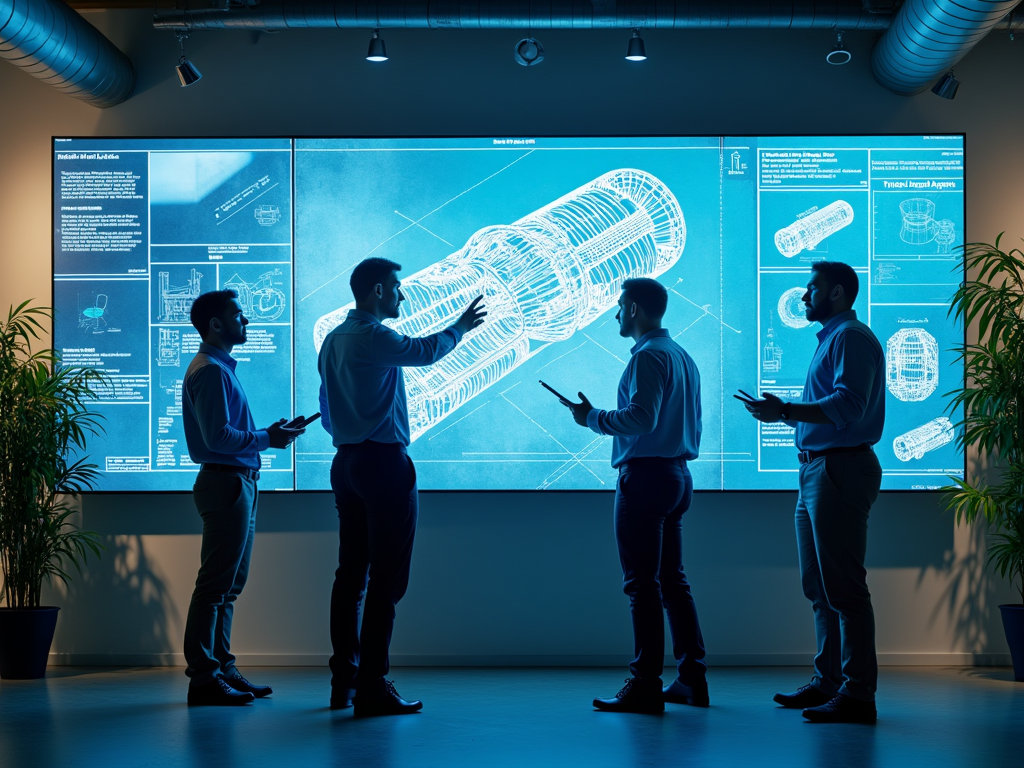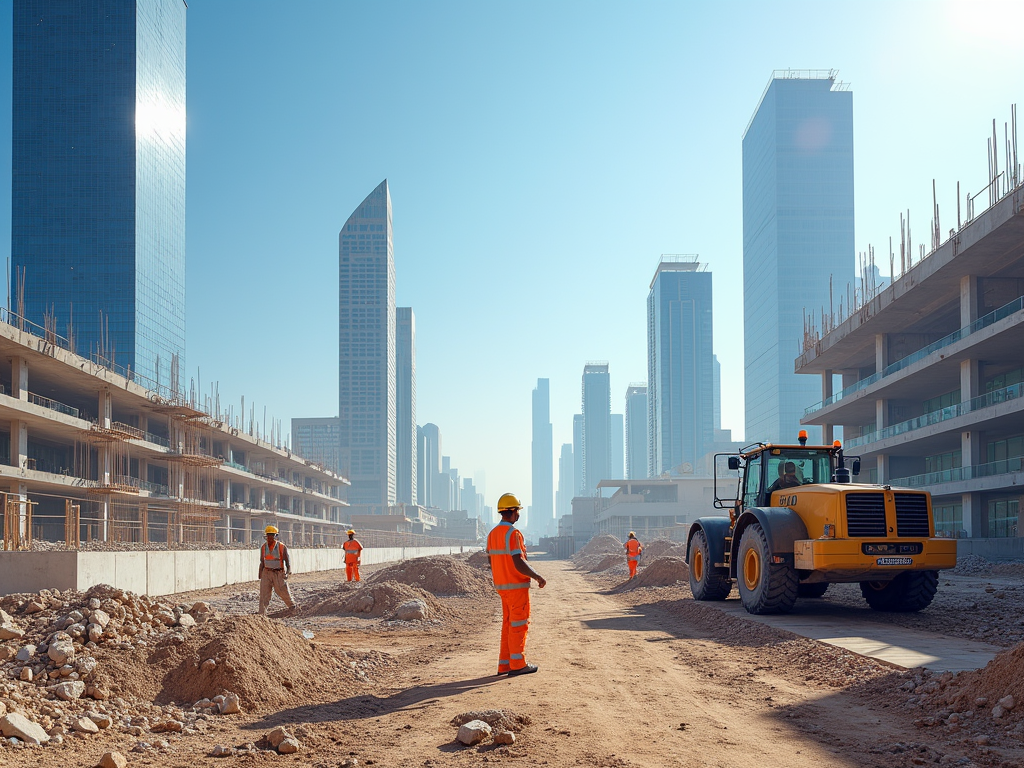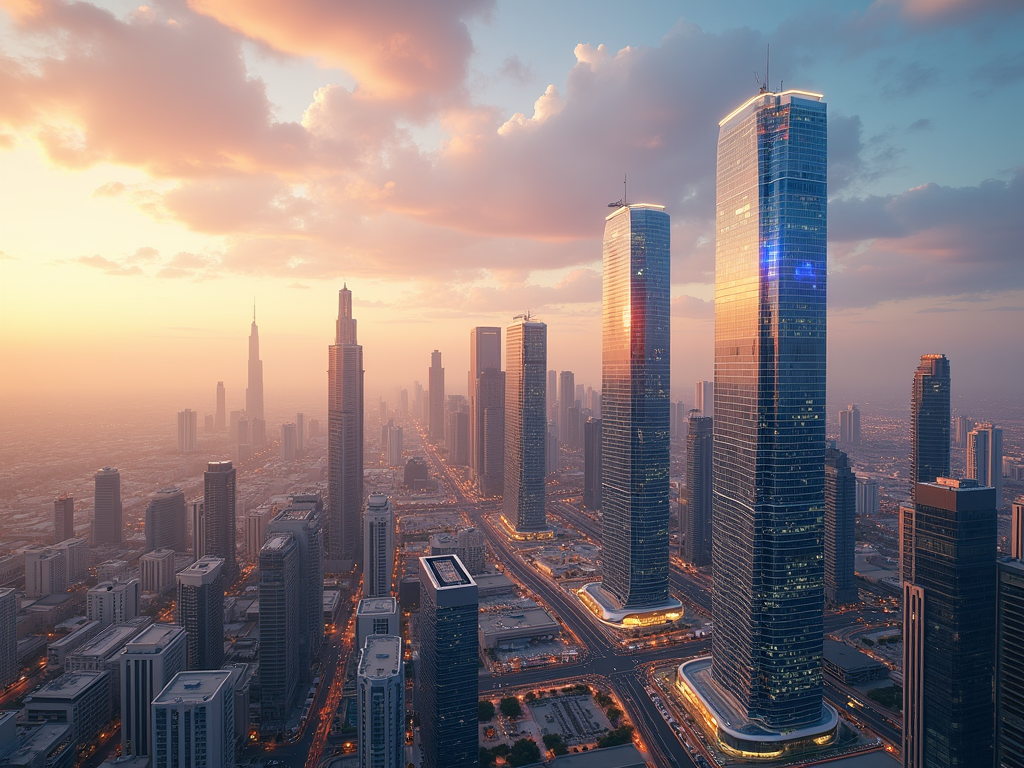Digital twins technology has witnessed remarkable growth in Dubai, emerging as a transformative force across numerous industries such as construction, real estate, and urban planning. This innovative technology enables the creation of virtual replicas of physical assets, facilitating real-time monitoring and analysis. Through this initiative, Dubai aims to enhance operational efficiency, reduce costs, and improve sustainability in line with its smart city vision. The integration of advanced data analytics and the Internet of Things (IoT) into digital twins has further strengthened its impact on local businesses and governance. As the technology continues to evolve, its applications are rapidly expanding, thereby fueling economic development and attracting global investment. This article delves into the factors driving the adoption of digital twins in Dubai and its implications for the future.
Understanding Digital Twins Technology

Digital twins technology refers to the digital replicas of physical entities, processes, or systems. They utilize real-time data and simulations to mirror the characteristics and behaviors of their physical counterparts. Key components include:
- Data Integration: Seamless connection with IoT devices allows accurate data collection on real-world operations.
- Simulation: Creating predictive models that help in forecasting outcomes based on different scenarios.
- Analytics: Leveraging big data analytics to gain insights into performance and aspects requiring improvement.
This technology is essential for industries like manufacturing, healthcare, and smart city initiatives, providing significant value through enhanced decision-making and operational efficiency. In Dubai, the application of digital twins extends to infrastructure management, urban planning, and even public service optimization.
The Role of Government Initiatives

The Dubai government has played a pivotal role in the growth of digital twins technology. Through various strategic initiatives and investments, they have been able to create a conducive environment for technological advancements. Key government actions include:
- Smart Dubai Initiative: Aiming to transform Dubai into the world’s smartest city, this initiative encompasses digital twin strategies to enhance public service efficiency.
- Public-Private Partnerships: Collaborating with technology firms to bolster the development and implementation of digital twins across sectors.
- Regulatory Frameworks: Establishing guidelines promoting the safe and effective use of digital technologies in urban management and public health.
These efforts illustrate the commitment of the Dubai government to embrace digital transformation and sustain the city’s position as a global leader in innovation and technology.
Several key industries in Dubai are actively employing digital twins technology to improve efficiency and performance. These include:
- Construction: Enabling real-time project monitoring, enhancing safety, and predicting structural failures before they occur.
- Real Estate: Assisting property developers and investors to visualize properties and their functionalities before they are built.
- Healthcare: Facilitating patient management through digital simulations of individual health conditions for improved treatment plans.
- Transport: Optimizing traffic flows and minimizing congestion through data-driven models of public transit systems.
- Energy Management: Monitoring and optimizing energy consumption and production for sustainability initiatives.
These industries are setting precedence in incorporating digital twins, contributing significantly to the overall growth of the technology in Dubai.
Challenges and Future Prospects
Despite the impressive growth of digital twins technology, several challenges persist that could impede its widespread adoption. These challenges include:
- Data Privacy Concerns: As digital twins rely on vast amounts of data, ensuring the security and privacy of user information is crucial.
- High Implementation Costs: Initial setup and integration costs may be prohibitive for smaller enterprises seeking to adopt this technology.
- Need for Skilled Workforce: A shortage of professionals with the necessary skills to manage and analyze digital twin data complicates deployment.
Looking towards the future, the potential for digital twins in Dubai is immense. Continued advancements in AI, machine learning, and data analytics will further enhance their capabilities, leading to innovative solutions across various sectors. As the city embraces smart technologies, the broad implementation of digital twins is anticipated to revolutionize not only Dubai’s industries but also its urban ecosystems.
Conclusion
The growth of digital twins technology in Dubai is a testament to the city’s dedication to innovation and technological advancement. By integrating digital twins into critical sectors, Dubai aims to enhance operational efficiency, improve decision-making, and create a sustainable urban environment. As investments continue and government initiatives foster collaboration, the potential applications of this revolutionary technology will only expand. In navigating the challenges ahead, Dubai’s commitment to finding solutions will ensure its position as a global leader in digital innovation.
Frequently Asked Questions
1. What is a digital twin?
A digital twin is a virtual representation of a physical object, process, or system that uses real-time data to simulate its performance, behavior, and conditions.
2. How is digital twin technology used in construction?
In construction, digital twins enable real-time monitoring of projects, enhance safety by predicting risks, and allow for better resource management throughout the lifecycle of a project.
3. What are the key benefits of implementing digital twins in industries?
The key benefits include improved operational efficiencies, enhanced decision-making, reduced costs, predictive maintenance, and better resource management.
4. What challenges does digital twin technology face?
Key challenges include data privacy concerns, high implementation costs, the need for a skilled workforce, and data integration issues.
5. How does the Dubai government support digital twin technology?
The Dubai government supports digital twin technology through initiatives like Smart Dubai, public-private partnerships, and regulatory frameworks aimed at fostering innovation and effective urban management.

